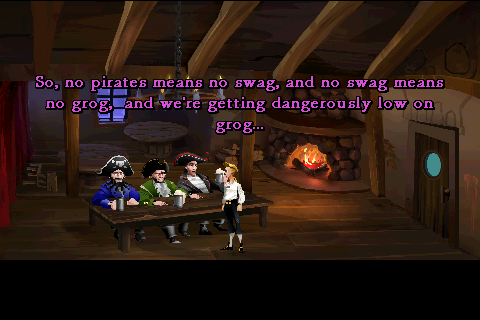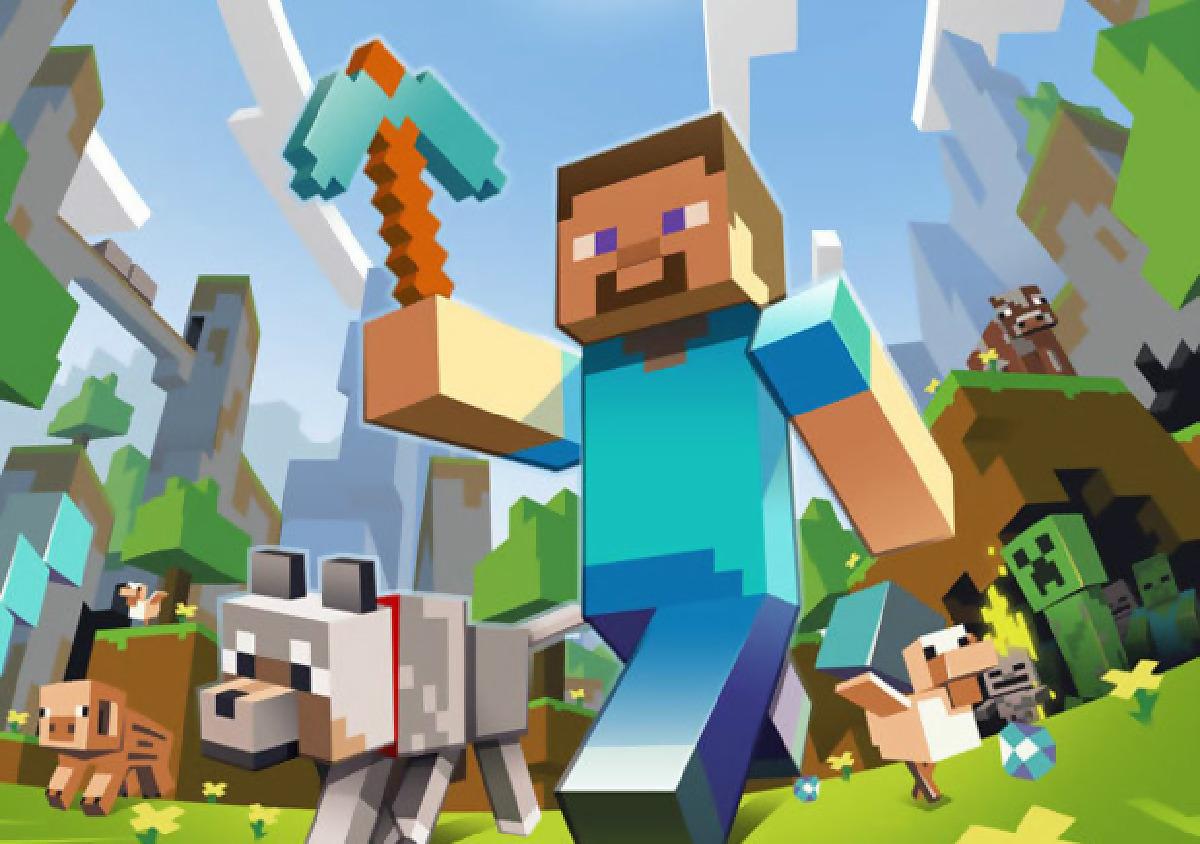1.) Charlie Brooker
2.) Charlie Brooker talking about video games.
The title is self-explanatory, and fairly in-depth in regards to the most significant games throughout the medium's history. An interview with Charlie was put on the Guardian a day before the program was broadcast.
 Chronologically, the show started from the origins of video gaming in the 70's. Emphasis was placed on the likes of Pong, which, while not technically being the first game to exist, was the first one to be successful; Space Invaders, which brought gaming into the mainstream (arcades, and arcade machines extending into cafe's and chip shops) and Pac-Man, which arguably signified gaming's history with its first mascot.
Chronologically, the show started from the origins of video gaming in the 70's. Emphasis was placed on the likes of Pong, which, while not technically being the first game to exist, was the first one to be successful; Space Invaders, which brought gaming into the mainstream (arcades, and arcade machines extending into cafe's and chip shops) and Pac-Man, which arguably signified gaming's history with its first mascot.
 The incredibly influential Mario was shown, as well as Zelda. Tetris, which was one of the first games to come out of the East and into the West, also made an appearance with commentators describing how it was amazingly simple, but with a constant barrage of complications and challenges that would prove addictive and rewarding.
The incredibly influential Mario was shown, as well as Zelda. Tetris, which was one of the first games to come out of the East and into the West, also made an appearance with commentators describing how it was amazingly simple, but with a constant barrage of complications and challenges that would prove addictive and rewarding.
There was also the somewhat perverse Night Trap, which looked crap and was apparently crap, according to Brooker. Grand Theft Auto also made the expected appearance, albeit a more simple, different and amusing context as opposed to how it is portrayed by the likes of the Daily Mail. There was a clip of an older woman roughly in her 70's playing the newest one, GTA5, running around with her character and punching people, pretending that the victims were people from British Gas. Interesting how rarely anybody discusses violence in video games as a way of indulging a fantasy that would quite clearly get us jailed in the real world. This woman proves, however, the preconception that video games are solely for teenage boys is a thoroughly wrong and outdated one. If anything, video games bridge a gap between older and younger people.
I'll skip the rest, and recommend watching it. It dominated Channel 4 on Saturday night, and in my opinion did a massive service to video gaming culture by bringing a far more simplified and inclusive understanding of this world to the wider and often intimidated audience.
There were a lot of brilliant and complicated points that were simplified for explanation, but there were two very interesting things that struck me about this program. When it went onto talk about the Nintento Wii and Xbox Kinect in its last segments, it was pointed out how interactive and evolved video games have become. It is quite a big "woah" moment when you take deeply into account the impact that gaming has made in the world.
 Chronologically, the show started from the origins of video gaming in the 70's. Emphasis was placed on the likes of Pong, which, while not technically being the first game to exist, was the first one to be successful; Space Invaders, which brought gaming into the mainstream (arcades, and arcade machines extending into cafe's and chip shops) and Pac-Man, which arguably signified gaming's history with its first mascot.
Chronologically, the show started from the origins of video gaming in the 70's. Emphasis was placed on the likes of Pong, which, while not technically being the first game to exist, was the first one to be successful; Space Invaders, which brought gaming into the mainstream (arcades, and arcade machines extending into cafe's and chip shops) and Pac-Man, which arguably signified gaming's history with its first mascot.
Space Invaders
The show also went onto document the anarchic, open source ZX Spectrum, with attention given to its classic game, Manic Miner. It led onto its rival, the Commodore 64, and the "geek" clash of the rivalry that resulted. There was also talk of the BBC Microbe for the posh, which was then a common enemy to both the ZX and Commodore.
Tetris
 The incredibly influential Mario was shown, as well as Zelda. Tetris, which was one of the first games to come out of the East and into the West, also made an appearance with commentators describing how it was amazingly simple, but with a constant barrage of complications and challenges that would prove addictive and rewarding.
The incredibly influential Mario was shown, as well as Zelda. Tetris, which was one of the first games to come out of the East and into the West, also made an appearance with commentators describing how it was amazingly simple, but with a constant barrage of complications and challenges that would prove addictive and rewarding.
The Secret of Monkey Island
The Secret of Monkey Island was rightfully put on the list as the quintessence of interactive story-telling in video games, and it was suggested that it influenced the Pirates of the Caribbean films. It is argued that this game was one of the first to include quirky elements and charm to a gaming narrative.
Mortal Kombat II
Violence was inevitably drawn on in this program, where significant games like Street Fighter II and Tekken appeared. There was no surprise when Mortal Kombat came along to start the real controversy in politics and society, due to its hilariously gory nature. I'm 24 years old, so I would naturally find it funny, mainly because it is so insane and unrealistic, despite how real it does look with Mortal Kombat 9, where even Charlie commented that some scenes were unacceptable due to either being "too soft in his age" or gaming graphics being advanced to the point of glistening a character's entrails that well that it is now drawing near a moral fault line. Still, I don't think I've seen the news headline of someone ripping off a person's head with their spinal columns still attached quite yet...
Doom
There were also clips of Doom, which married horror and violence in gaming to each other. It also pioneered, albeit accidentally, the first-person shooter genre of video gaming; perpetuating the sense of the player delving into the gameplay with further empathy to the character they control.There was also the somewhat perverse Night Trap, which looked crap and was apparently crap, according to Brooker. Grand Theft Auto also made the expected appearance, albeit a more simple, different and amusing context as opposed to how it is portrayed by the likes of the Daily Mail. There was a clip of an older woman roughly in her 70's playing the newest one, GTA5, running around with her character and punching people, pretending that the victims were people from British Gas. Interesting how rarely anybody discusses violence in video games as a way of indulging a fantasy that would quite clearly get us jailed in the real world. This woman proves, however, the preconception that video games are solely for teenage boys is a thoroughly wrong and outdated one. If anything, video games bridge a gap between older and younger people.
The Lara Croft Evolution
The portrayal of women was another major theme, from the evolution of Lara Croft from Tomb Raider, to the non-linear sci-fi franchise, Mass Effect, where you didn't necessarily have to be a straight, white or male protagonist. These were overall centered around the polemical line between video gaming's feminist presence as well as sexual objectification of women. On this I think it is safe to say that gaming has come very far in this area, but there is still much room for debate and progress.
Minecraft
Minecraft, a game I used to play obsessively since its alpha days back in 2010, also made its appearance. I can fondly say that I have seen this simple game of virtual lego explode with the vast worlds of creativity that you see younger audiences making today. It's also irrefutable proof that video games can work as positive, educational, and for more entertaining tools for the young, and this should be valued a lot more by society.I'll skip the rest, and recommend watching it. It dominated Channel 4 on Saturday night, and in my opinion did a massive service to video gaming culture by bringing a far more simplified and inclusive understanding of this world to the wider and often intimidated audience.
There were a lot of brilliant and complicated points that were simplified for explanation, but there were two very interesting things that struck me about this program. When it went onto talk about the Nintento Wii and Xbox Kinect in its last segments, it was pointed out how interactive and evolved video games have become. It is quite a big "woah" moment when you take deeply into account the impact that gaming has made in the world.
Journey
The other thing that struck me was the speculation of the future in gaming. There was an overall suggestion that the emotion and narrative elements will be the next major things of video gaming, and true enough, we're already seeing it with independent (Indie) games as well as AAA releases with bigger funding. Since The Secret of Monkey Island, releases like Shadow of the Colossus, The Last of Us, Beyond Two Souls, Journey, Limbo and many others have shown how capable video games are as a medium for stunning narratives, sophisticated concepts and emotional design. This will be a far more exciting decade for video games. We haven't seen the half of it with possibilities.






No comments:
Post a Comment